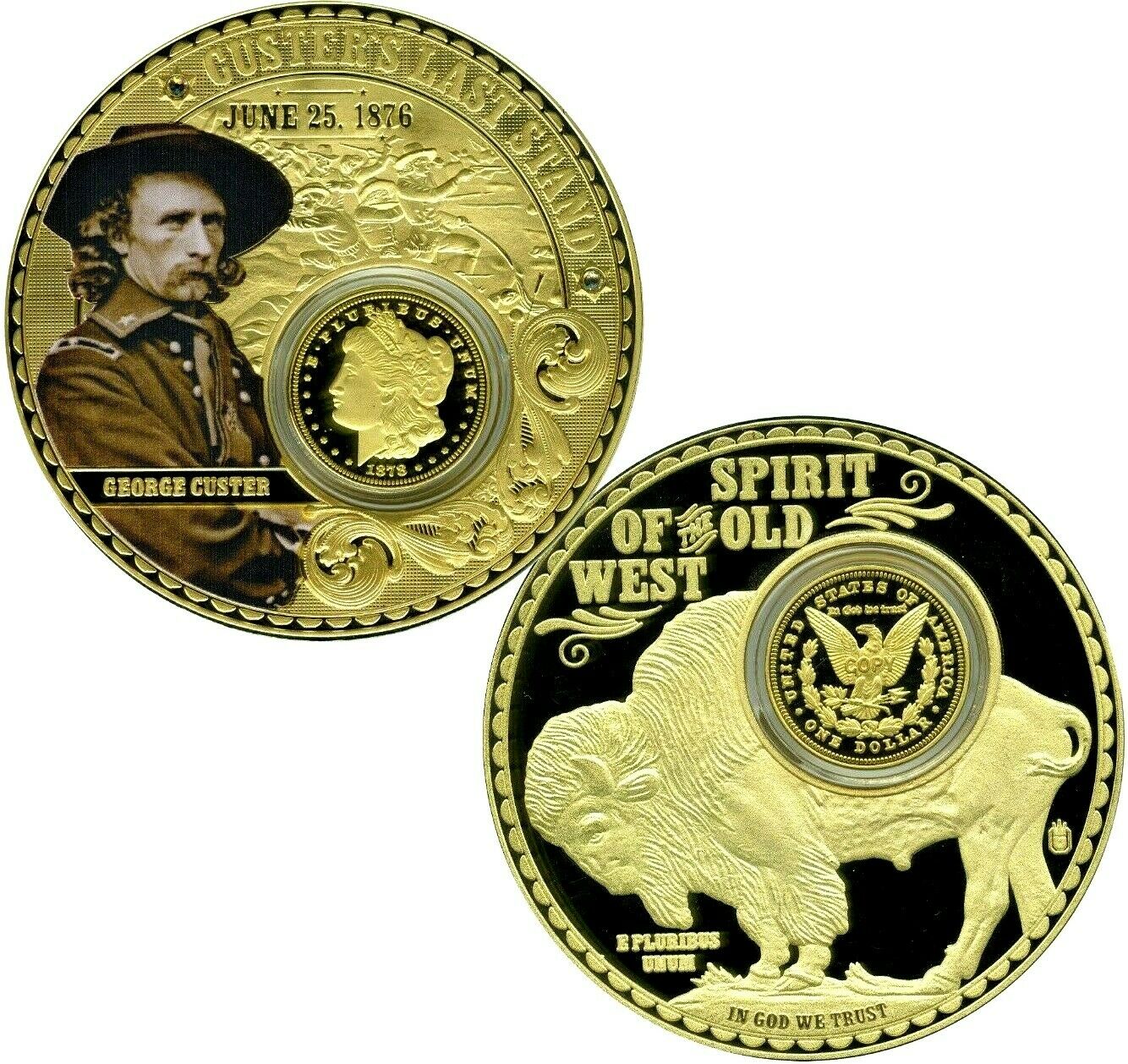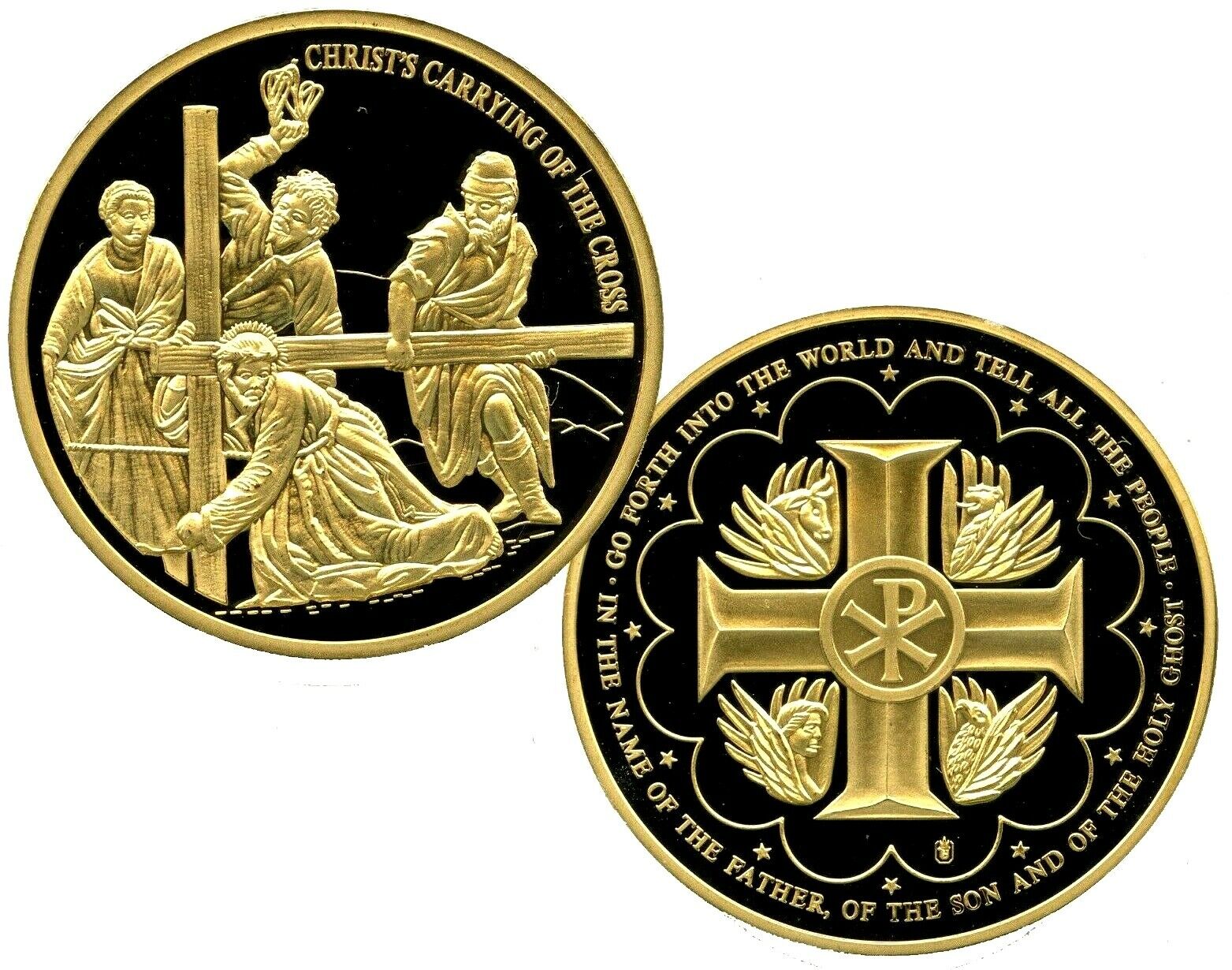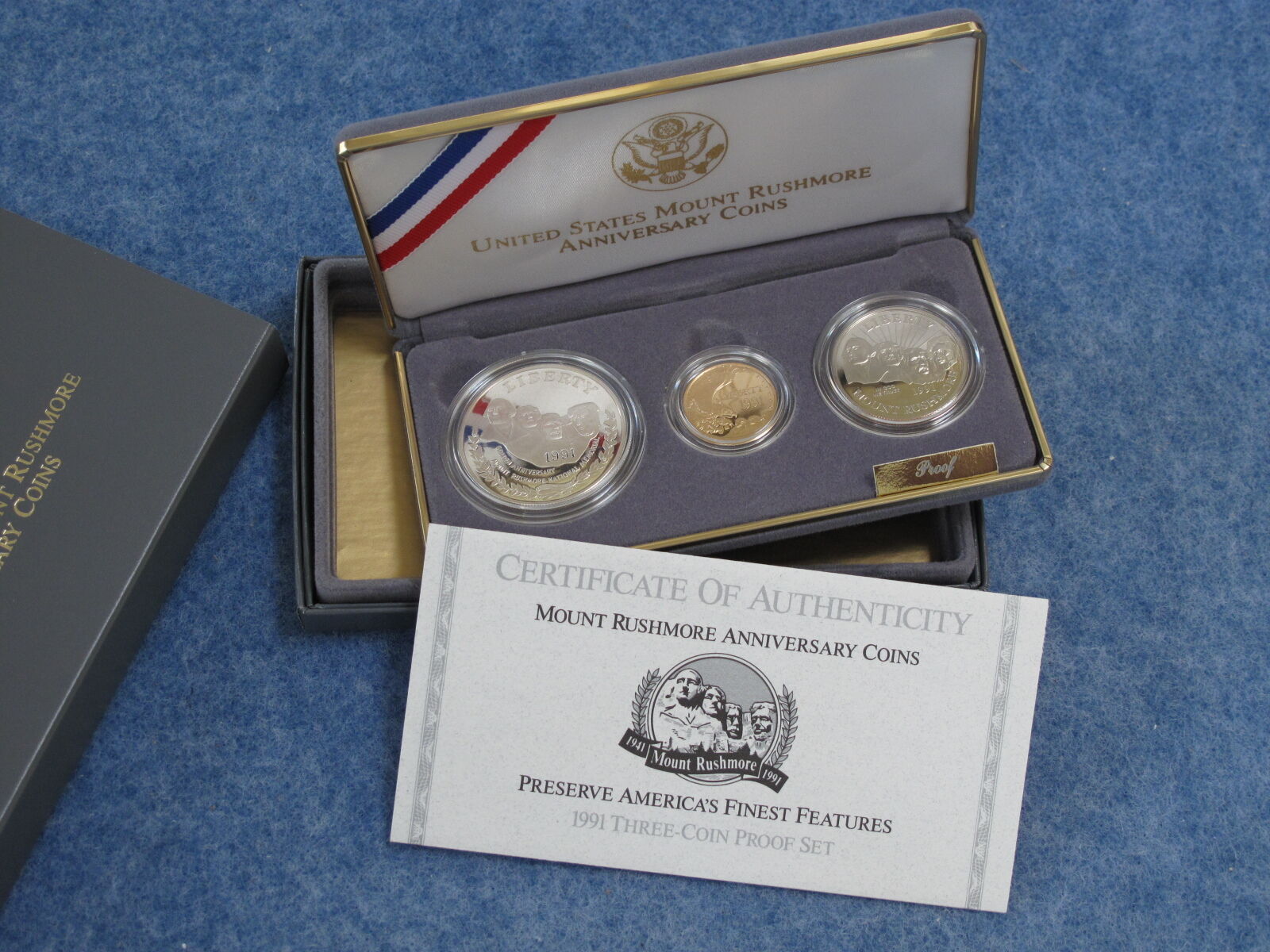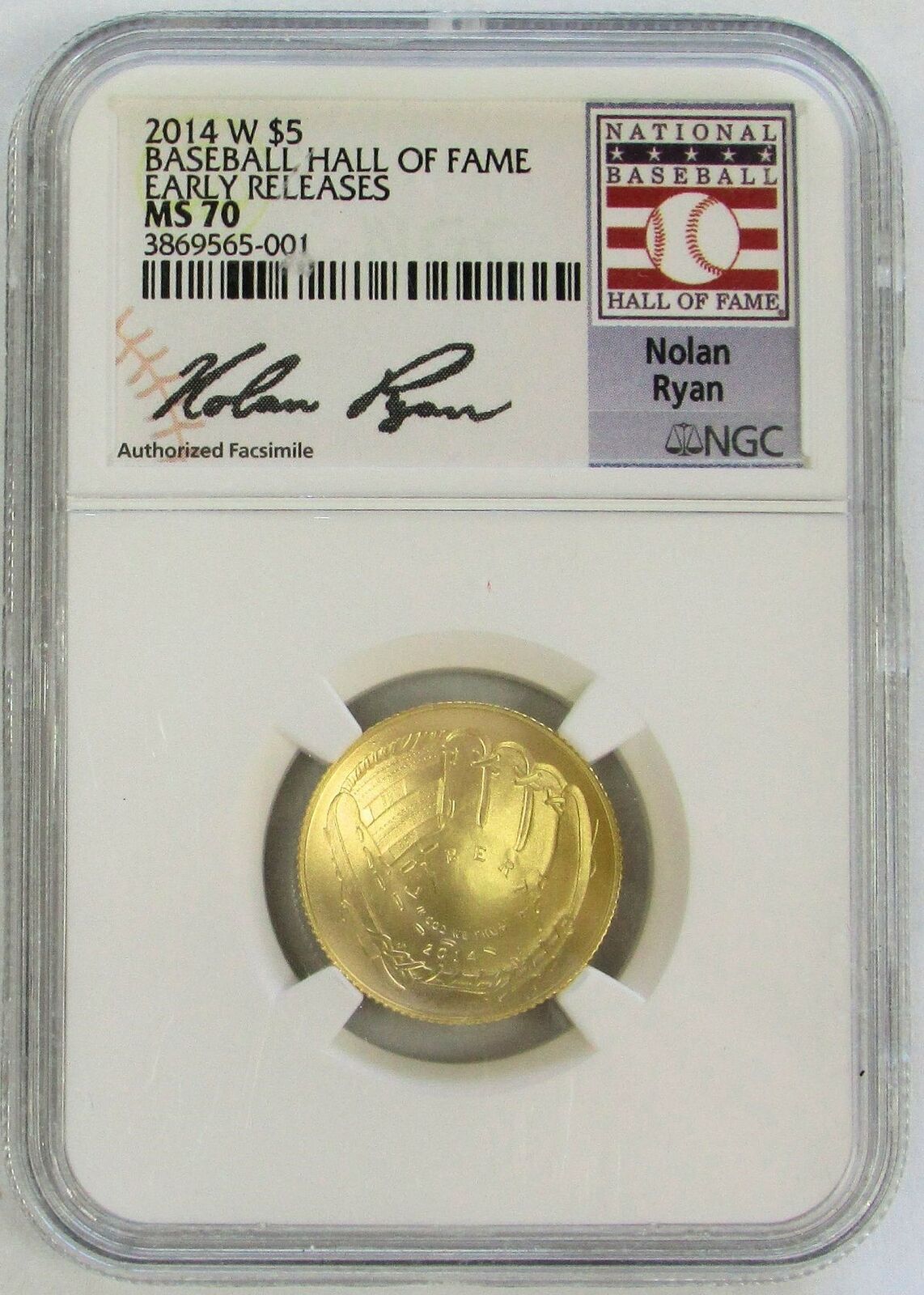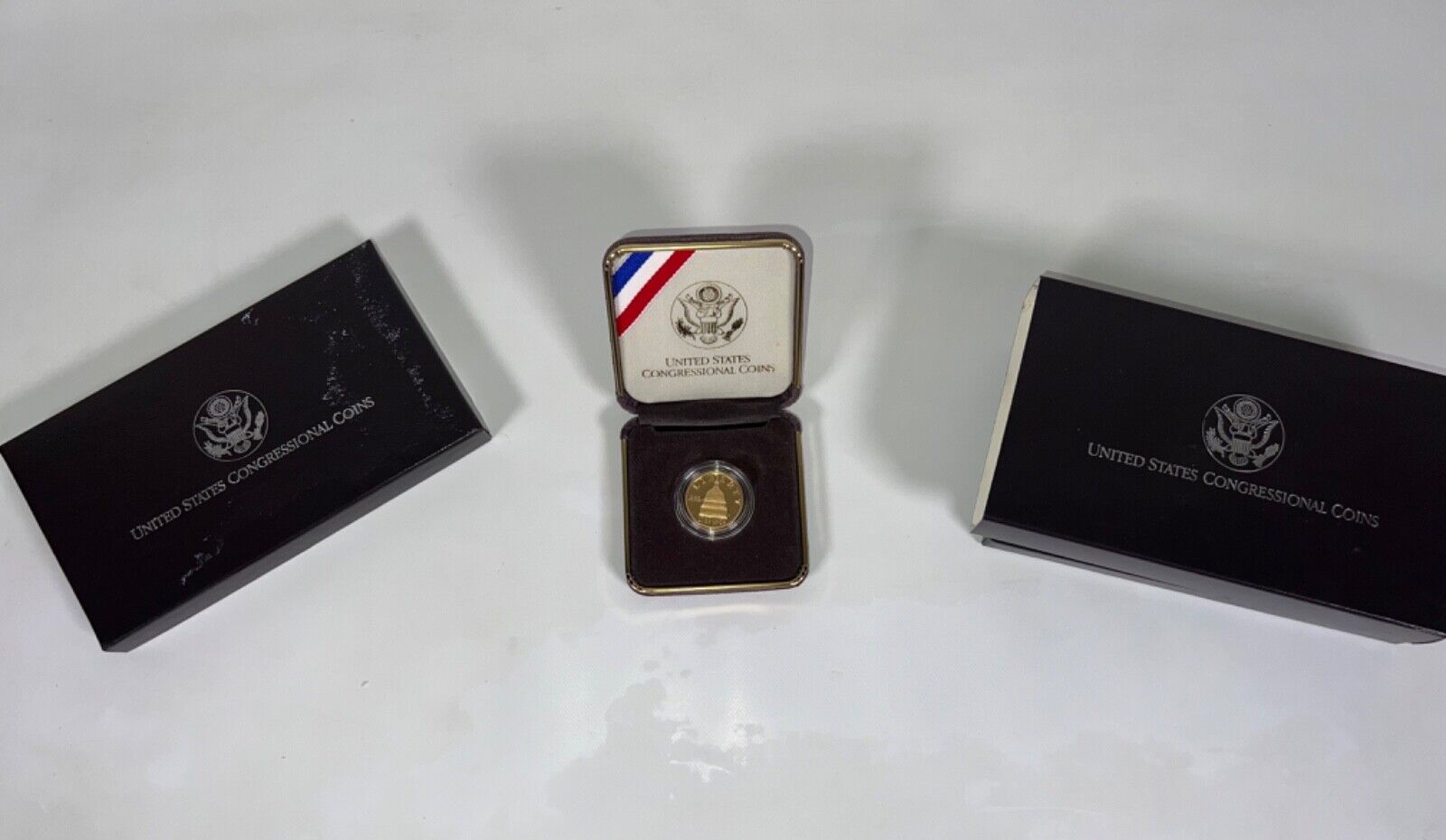-40%
CUSTER'S LAST STAND COLOSSAL COMMEMORATIVE COIN PROOF VALUE 9.95
$ 73.89
- Description
- Size Guide
Description
CUSTER'S LAST STAND COLOSSAL COMMEMORATIVE COIN PROOF VALUE 9.95Features a highly detailed image of General George Custer
Inset with replica of classic 1878 coin and sparkling Swarovski crystals
Layered in brilliant 24k gold
Details
Limitation:
9999 complete collection
Weight:
110 g
Material (details):
Cu, layered in 24k gold w. pad-print + Swarovski
Issue year:
2020
Diameter:
70 mm
Obverse:
Custer's Last Stand
Reverse:
Spirit of the Old West
Finish:
Gold-layered
Material:
Copper
Quality:
Proof
CUSTER'S LAST STAND COLOSSAL COMMEMORATIVE COIN PROOF
In the late 1860s, the U.S. government signed a treaty with
Native Americans naming the Black Hills of South Dakota
as part of the Great Sioux Reservation.
But when gold was discovered in the area a few years later,
the government had a sudden change of heart and quickly moved to relocate all Indians from the hills.
Instead of leaving peacefully, however, Indians from all over traveled to join
Sitting Bull and Crazy Horse who had set up a camp on the banks of the Little Big Horn River in Montana.
General George Custer, leading the U.S. 7th Cavalry, was tasked with dispersing the growing Indian numbers.
After scouting the Little Big Horn valley, Custer planned a surprise attack instead of waiting for reinforcements.
This decision placed Custer and his regiments of about 700 men at a distinct disadvantage to roughly 2,000 Sioux warriors.
The Battle of Little Big Horn--or as it came to be known, Custer's Last Stand--was the largest action
of the Great Sioux War of 1876 and resulted in the Sioux easily repulsing Custer's uncoordinated and ill-advised attack,
killing General Custer along with more than 260 of his men.
Today the battle is remembered as an iconic defeat in early U.S. history.
.
